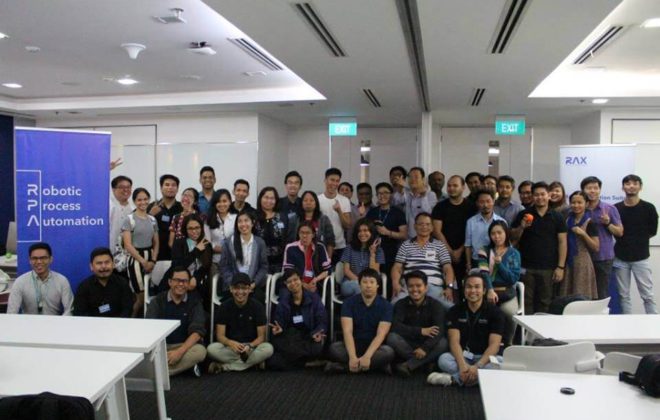RPA Impacts on Hospitals and Healthcare Industry
As the number of patients grow, healthcare providers are getting more and more troubled with managing tedious tasks such as digitizing patient files, appointment scheduling, and executing billing and claims processing. To help overcome these challenges, hospitals and clinics come to embrace Robotics Process Automation (RPA) as it paves the way for healthcare personnels to focus on high-value work and better-decision making.
A recent study from Sage Growth Partners and Olive reported that half of the hospitals now plan to utilize automation to improve their services by 2021.
In 2016, McKinsey reported a 36% potential for automation in the healthcare sector. Three years later, a study published in JMIR Research Protocols confidently predicted that the future of healthcare lies in the automation of daily business processes. After all, RPA can mimic almost any predictable human interaction which can eventually free up clinicians’ time and improve their service delivery.
How exactly can RPA impact the healthcare sector? Here are some of the benefits automation can bring.
1. An improved appointment scheduling system
The benefit of automation can be felt the minute a patient decides to schedule an appointment with a physician. Bots can easily help in the collection of data from patients such as their preferred appointment schedule. RPA systems can streamline these appointments according to the patient’s needs, location, doctor availability, and other criteria.
2. A better healthcare cycle
RPA has the capability to deal with data efficiently. Automation allows for easier access to patient data when needed. By analyzing a comprehensive amount of patient records available, bots can accurately diagnose the patient’s condition, saving valuable time for doctors and allowing them to attend to their patients better. More so, a study showed that the automation of medical records leads to fewer complications and a lower mortality rate.
3. A simplified claims process
Automation can help speed up the process of harvesting data concerning insurance policies of patients. This involves data input, processing, and evaluation—tasks that are accomplished manually are often prone to error that can affect a hospital’s cash flow. In fact, 30-40% of insurance claims can be denied because of failure to comply with regulations.
RPA can streamline this process by speeding it up and reducing errors, all while addressing the recovery of revenue that might be written off.
4. A more effective discharge instruction
More often than not, patients fail to follow discharge instructions properly once they leave the healthcare facility, hence the likelihood of them not being effectively ushered to full recovery. Bots can ensure the accuracy of discharge guidelines by sending reminders to patients about their prescriptions, doctor appointments, and follow up tests.
5. A more efficient audit procedure
Auditing can be a painstaking and time-consuming manual task. Luckily, this problem can be solved by automation. Bots can check the efficiency of patient services and review the quality of safety procedures provided on the premises. Moreover, reports can easily be generated with the help of bots. However, bear in mind that while automation can effectively cut the complications and timeline of the auditing process, a more accurate auditing process can’t be achieved without the help of proper human intervention.
6. A faster account settlement process
In a normal circumstance, a healthcare provider receives a number of patients. Hence, staff members are expected to keep track of each patient’s bill which may include consultation fees test fees, wardroom costs, and many more. Staying on top of this information plus the responsibility to attend to each patient properly can be burdensome and can increase the likelihood of error in the billing system.
Automation helps compile patient information concerning their billing information. When programmed in the billing system, bots can generate automated bills with the services rendered for each patient. This not only results in the accuracy of billing but can also reduce delays in payment and financial loopholes.
Ultimately, the benefits of RPA can encompass several industries including healthcare. As these hospitals continue to optimize their daily processes, more and more healthcare service providers can follow suit.





